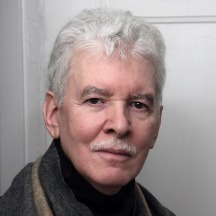"The freedom that has come to the Colored race the world over is largely due to the brave stand taken by the sons of Haiti." |
- Frederick Douglass
As the Haitian crisis continues, Port of Harlem has shared with its readers the country's importance to the African world and its impact on Black America with articles from diverse angles. The information shared through those pieces gave me a better foundation to understand what photographer Marvin Tupper Jones shared during my American Independence Day 2024 visit with him.
Former professor Gershome Williams, Sr., played a part in the foundation when he taught me about Haitian Joseph Anténor Firmin (1850-1911), a multidisciplinary scholar and statesman. Firmin published "The Equality of the Human Races: Positivist Anthropology" in 1885. The latter text is the world's first sustained book-length response to Euro-American "scientific racism."
From Frederick Douglass reenactor Nathan Richards' Frederick Douglass' Lecture on Haiti, I learn about the orator's reverence for Haiti. As ambassador to Haiti (1889-1891), Douglass resigned his tenure early after a diplomatic dispute over a commercial deal between Haiti and American corporation Clyde and Company went sour.
The Company was trying to establish a shipping port at Môle-Saint-Nicolas. Clyde and Company did not want to negotiate a fair trade agreement. Douglass was on the side of the Haitian President Hyppolite and his Foreign Minister to Haiti (1889-1891), Joseph Anténor Firmin.
Learning more about Haiti made me emphatic to Senior Paramount Chief & Global Envoy for the Bakholokoe Meredith Beal's expression, "I feel like Haiti is still being punished for defeating Napoleon and the French."
With these thoughts from Port of Harlem articles under my hat, I spent a part of American Independence Day with documentary photographer and filmmaker Jones, who photographed Haitian forts from 1977 to 1989. "I visited two forts, the Citadel Henry near Cap Haitien and Fort Petion above Port-au-Prince."
Learning about Haiti and the Preservation of Her Forts
Praising the Past



At the Citadel, he recalls camping out on his first visit as there were no accommodations for tourists then. He continued, "I also photographed Forts Riviere and Neuf from an airplane and Crete Rouge with a long lens resting atop a car."
His interest in the 28 Black-built forts led him to a job with UNESCO in 1989 to document the Citadel Henry when it was near total restoration. That was 12 years "after I first stayed at the Citadel, exhibited my work, and published it as well," he says.
Jones presented me with a copy of "Black Crown, Henry Christophe, the Haitian Revolution and the Caribbean's Forgotten Kingdom" by Paul Clammer. He says I will learn even more about the significance of the tiny nation from the book. Haiti, for instance, is the Taino (Native Haitian) word for what the French called St. Domingue. By 1760, it had become the most profitable colony in the Americas. By 1791, the Haitian Revolution started, and the nation earned a new distinction: home of the only successful slave revolt in history.
Tupper and I slowed our visit as he talked about the first couple of Haitian leaders, Toussaint Louverture, Jean-Jacques Dessalines, Henri Christophe, Alexandre Pétion, and Jean-Pierre Boyer.
In 1825, Boyer agreed to pay reparations to France. Haiti was not able to pay off its "debt" until 1947, says Jones. It was not until the end of the American Civil War that the United States recognized Haiti as a nation. President Ulysses S. Grant appointed Ebenezer Bassett as the U.S. Minister to Haiti and the Dominican Republic. In 1869, Bassett became the first African American to serve as a U.S. diplomat anywhere in the world. Basset's story is yet another demonstration of the web that ties African American and Haitian advancement and that of Colored (African) people worldwide.
Port of Harlem often lists Tupper's in-person and online lectures in "Activities."
His interest in the 28 Black-built forts led him to a job with UNESCO in 1989 to document the Citadel Henry when it was near total restoration. That was 12 years "after I first stayed at the Citadel, exhibited my work, and published it as well," he says.
Jones presented me with a copy of "Black Crown, Henry Christophe, the Haitian Revolution and the Caribbean's Forgotten Kingdom" by Paul Clammer. He says I will learn even more about the significance of the tiny nation from the book. Haiti, for instance, is the Taino (Native Haitian) word for what the French called St. Domingue. By 1760, it had become the most profitable colony in the Americas. By 1791, the Haitian Revolution started, and the nation earned a new distinction: home of the only successful slave revolt in history.
Tupper and I slowed our visit as he talked about the first couple of Haitian leaders, Toussaint Louverture, Jean-Jacques Dessalines, Henri Christophe, Alexandre Pétion, and Jean-Pierre Boyer.
In 1825, Boyer agreed to pay reparations to France. Haiti was not able to pay off its "debt" until 1947, says Jones. It was not until the end of the American Civil War that the United States recognized Haiti as a nation. President Ulysses S. Grant appointed Ebenezer Bassett as the U.S. Minister to Haiti and the Dominican Republic. In 1869, Bassett became the first African American to serve as a U.S. diplomat anywhere in the world. Basset's story is yet another demonstration of the web that ties African American and Haitian advancement and that of Colored (African) people worldwide.
Port of Harlem often lists Tupper's in-person and online lectures in "Activities."
Advertisers | Contact Us | Events | Links | Media Kit | Our Company | Payments Pier
Press Room | Print Cover Stories Archives | Electronic Issues and Talk Radio Archives | Writer's Guidelines






